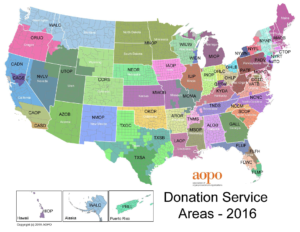There are currently 59 organ procurement organizations (OPOs) in the United States which serve their assigned geographic areas with variable productivity. Knowledge of organizational characteristics, programs and practices of more successful OPOs may be useful to increase the productivity of less successful OPOs.
A preliminary survey of all OPO executive directors in the United States ascertained the most important beneficial and detrimental factors affecting their success. Site visits were then conducted at OPOs based on a selection process utilizing population size, geographic location, minority population, donors per million population and donors per thousand deaths among potential donors. All OPOs were categorized and the highest-ranking OPOs in each of seven categories, based on 4 years of national data, were selected for the site visits. Regression analysis and correlation analysis using Pearson’s product-moment correlation were performed.
The survey to identify the important factors was returned by 47 (77%) of 61 OPOs existent in 1999. The most important beneficial factors identified by responding OPOs were adequate staffing and experience, allocation of responsibilities, hospital development and leadership. The most important detrimental factors were inadequate staffing and experience, poor donor hospital/transplant center/ OPO relationships and failure in the consent process.
Site visits of the highest-ranking OPOs demonstrated all had respected, experienced leadership focused on the donation process; efficient mechanisms for resolving allocation or transplant center conflicts; systems for monitoring activity and tracking outcomes; excellent communication between OPO and transplant centers; open internal communication at all levels of the OPO; immediate, on-site response to vascular donor referrals; and volunteer support of public and/or professional education. Regression and correlation analysis demonstrated that as minority population increases, OPO performance declines (P < 0.03). Moreover, independent OPOs were associated with poorer performance regardless of minority population (P < 0.05).
All of the successful OPOs visited had strong leadership, excellent donor hospital and transplant center relationships, well-developed communication and innovative methods to deal with their minority populations. Application of these practices within all OPOs could significantly enhance organ donation.





